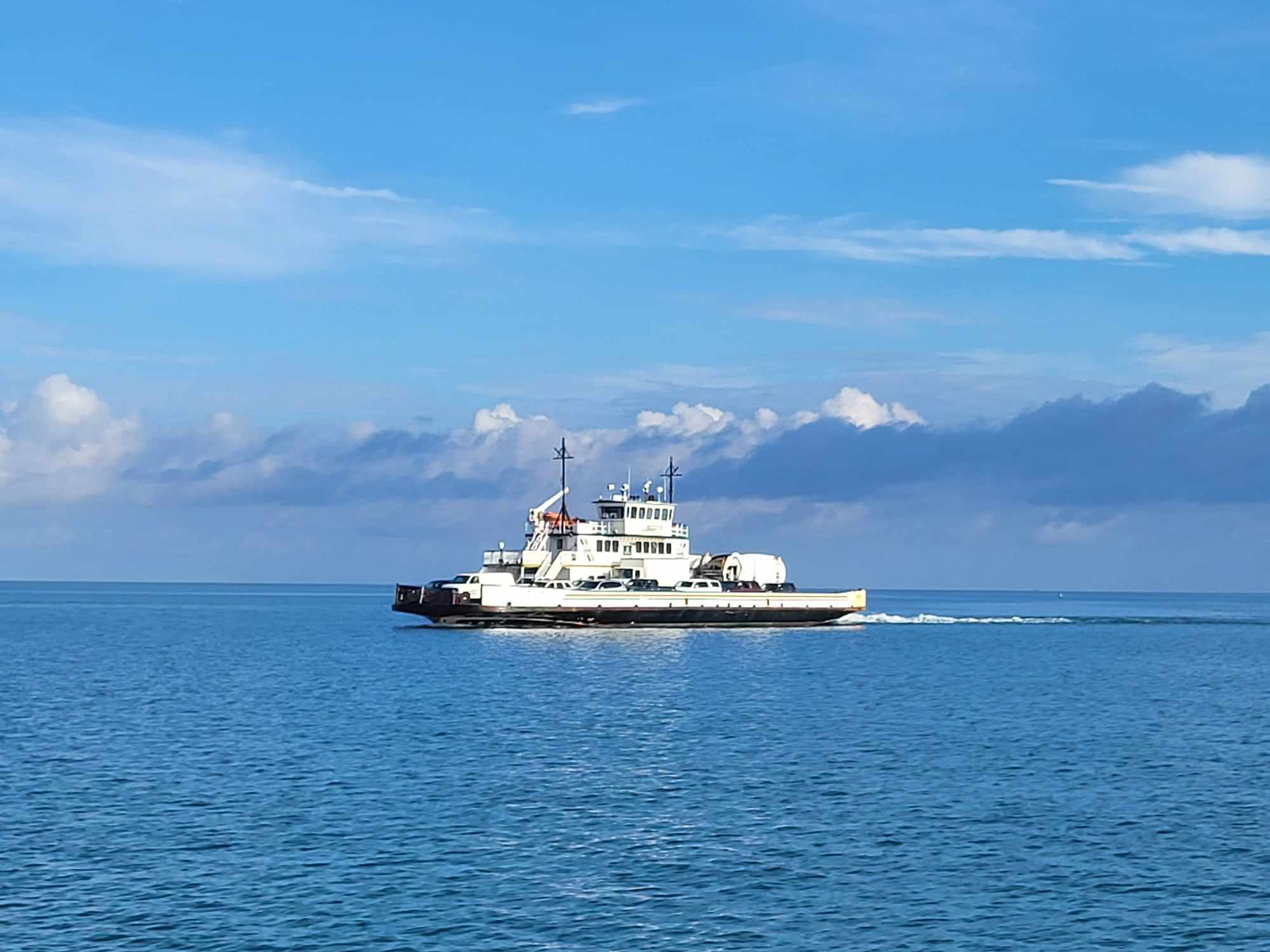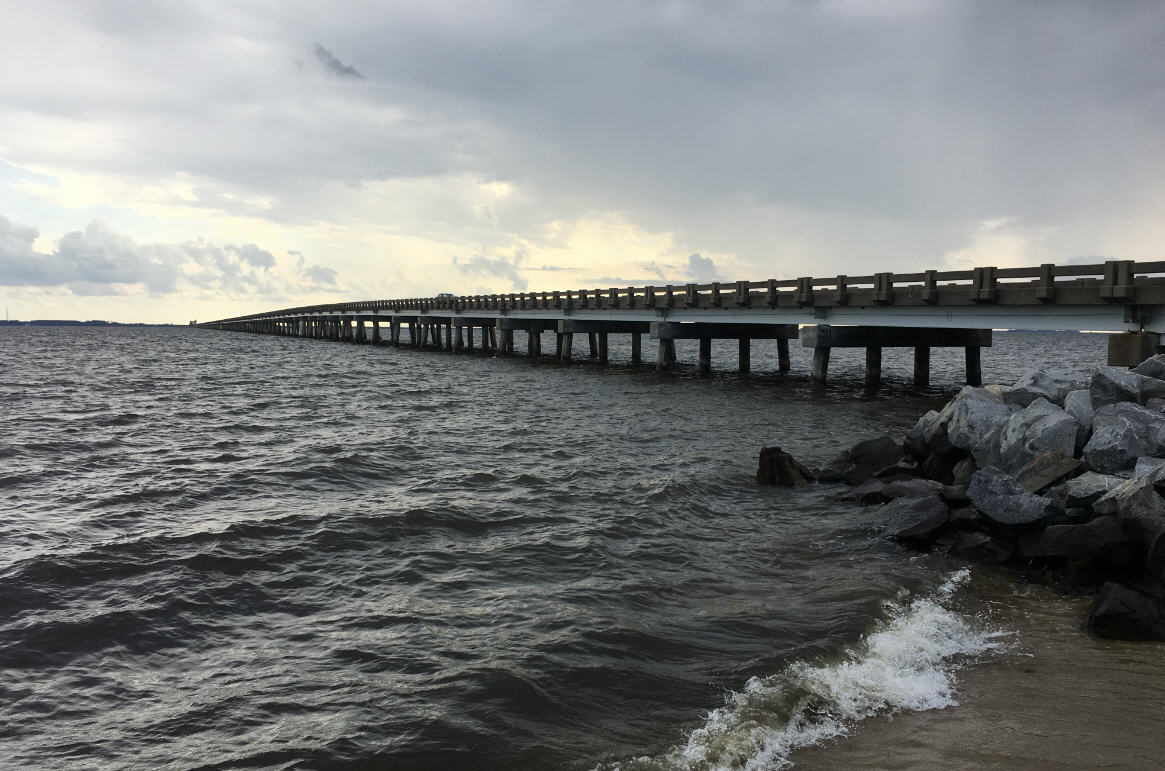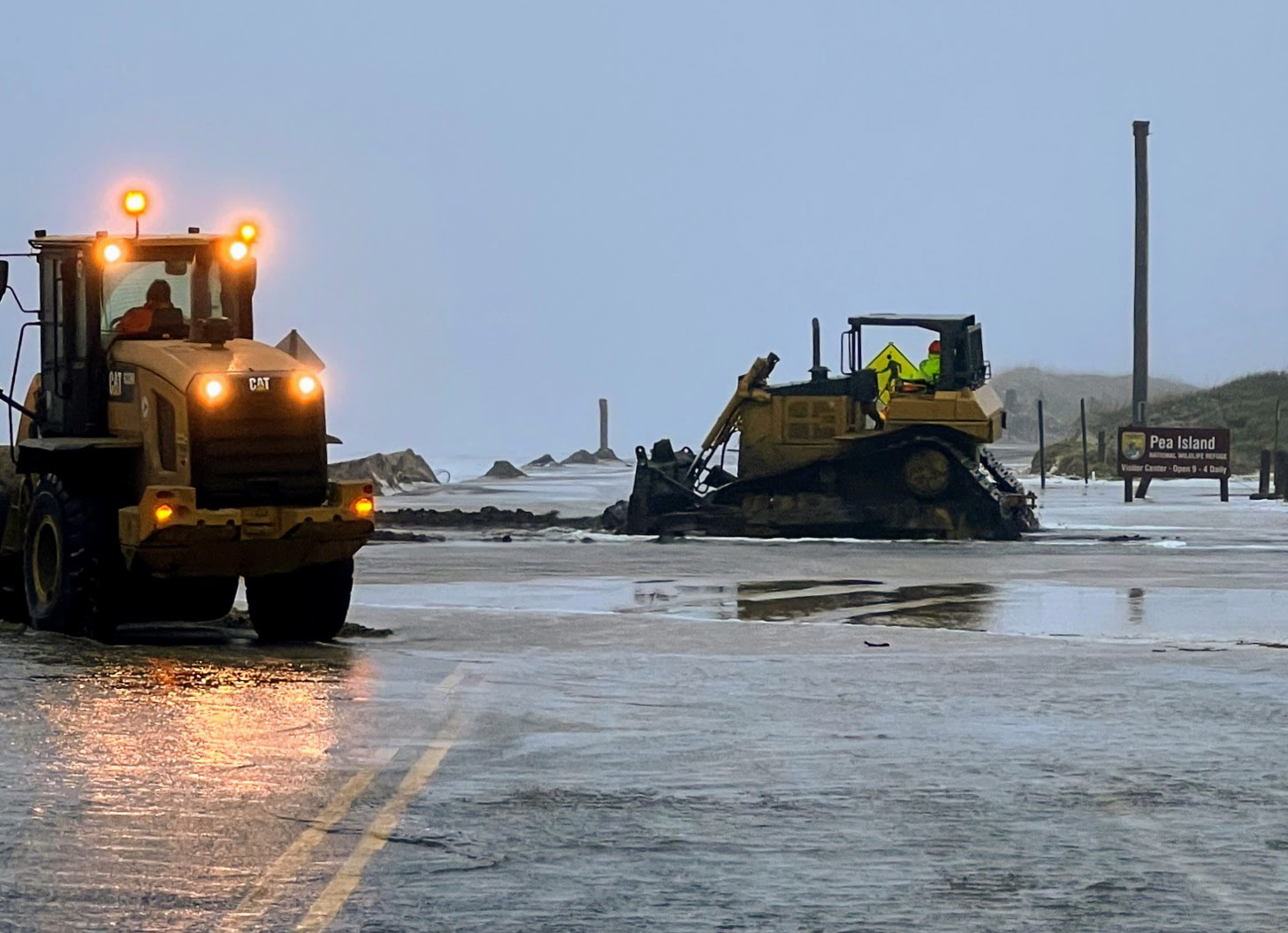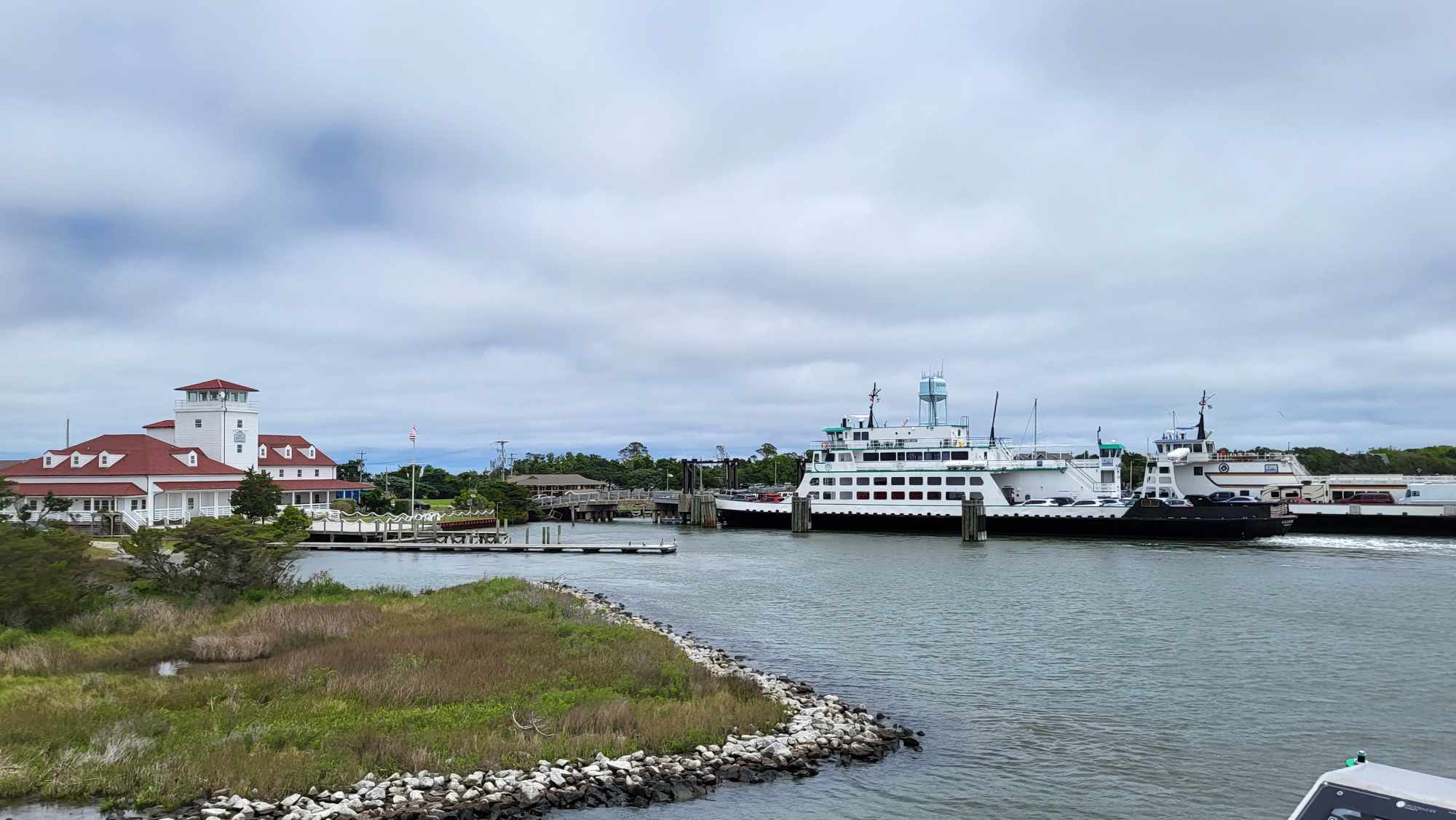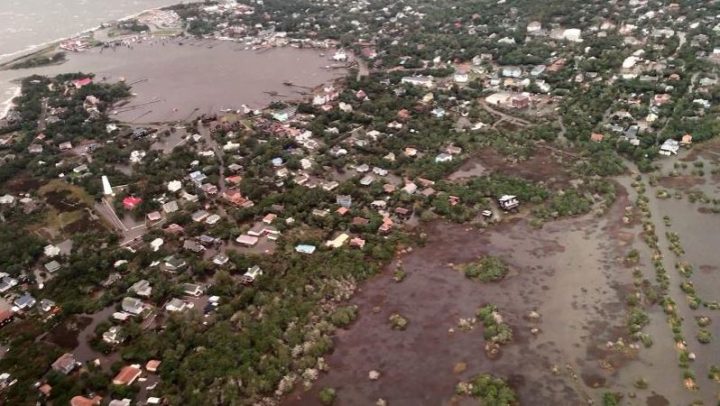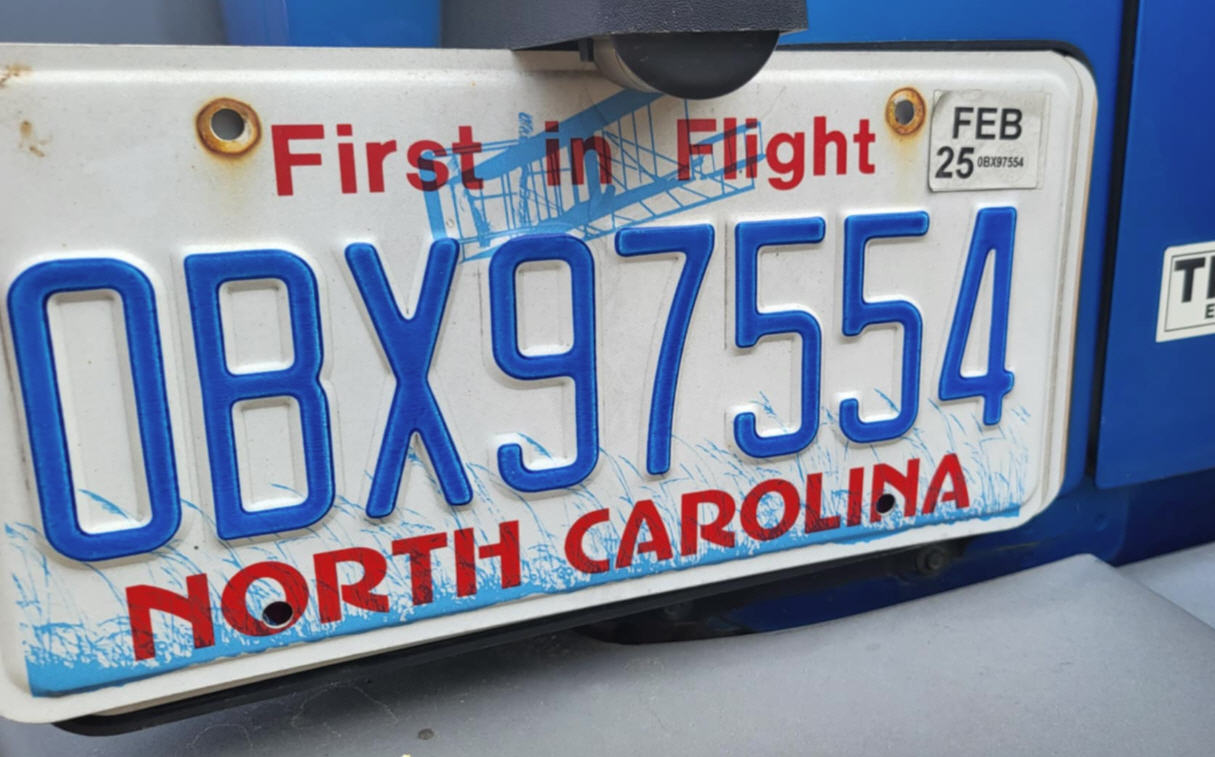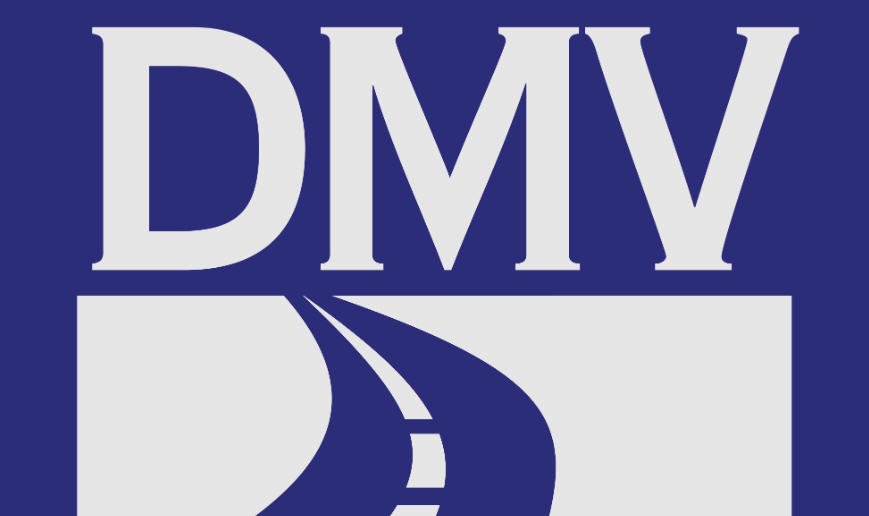Lawsuit seeks ban on gill nets in state waters
The Karen Beasley Sea Turtle Rescue and Rehabilitation Center last week filed a lawsuit in federal court seeking a ban on gill nets in state waters.
The Topsail Island facility alleges that the North Carolina Marine Fisheries Commission, the state Division of Marine Fisheries, and division director Louis Daniel have violated the federal Endangered Species Act by permitting and licensing gill nets that catch protected sea turtles.
The lawsuit asks the court to prohibit any gill net fishing in state coastal waters “until and unless” the state can show compliance with the Endangered Species Act (ESA). Coastal waters include the Atlantic Ocean out to three miles, the sounds, and portions of estuarine waters.
“I’m strictly a gill netter, so this would put me out of business completely,” said Frisco commercial fisherman Bill Van Druten, who fishes out of Hatteras village on his boat, Net Results.
And he said the ban would affect every commercial fisherman in Hatteras because almost all use gill nets during certain fishing seasons or use bait caught in gill nets.
The lawsuit was filed in North Carolina’s Eastern District Court and assigned to Judge Terrence Boyle, a name familiar on the Outer Banks. Boyle presided in the lawsuit by environmental groups over off-road vehicle use on the Cape Hatteras National Seashore and signed off on the consent decree that has governed public access to the beaches since 2008. The Defenders of Wildlife and the National Audubon Society were represented by the Southern Environmental Law Center in the complaint against the National Park Service.
The Duke Environmental Law and Policy Clinic represents the Beasley Center in the suit over gill nets. The complaint was submitted by two students and by Michelle Nowlin, supervising attorney for the clinic. Prior to joining the Duke faculty in June 2008, Nowlin worked at the Southern Environmental Law Center in Chapel Hill for 13 years.
“Almost every Atlantic state with significant sea turtle populations has banned or severely restricted these nets in areas where sea turtles nest and forage, proving that commercial fishing can prosper without this harmful technology,” Nowlin said in a press release.
But Van Druten, who fishes in Pamlico Sound and in ocean waters managed by the state, said he and many other Hatteras fishermen won’t have options.
“I don’t have federal fishing permits, and even if I did, none of those fisheries are year-round,” he explained. He said most federal permits are no longer issued by the government, but must be bought from a fisherman leaving the fishery and can be expensive.
Many of the boats used for gill netting are small boats or skiffs, not built for steaming three miles or more out into the Atlantic Ocean to fish in federal waters.
Fishermen said that if the controversy that erupted last summer over proposed pound net locations was any indication, switching from gill nets to pound nets was likely to create more user conflict issues with the kiteboarding community.
They also said the market for blue crabs dries up by June, if not earlier, eliminating crab potting as a substitute fishery.
National Marine Fisheries Service (NMFS) put the state on notice in July that it was not in compliance with the ESA after observing the incidental capture of turtles in flounder nets in the Core Sound area. All five species of turtles – green, loggerhead, leatherback, Kemp’s ridley, and hawksbill – found in North Carolina are listed as either threatened or endangered.
Without an ESA Section 10 Permit, any capture of turtles in fishing nets is illegal, even if the turtles are released alive and unharmed. The permit allows restricted fishing unless the number of allowed interactions for any species is reached.
North Carolina has had a Section 10 Permit for a large swath of Pamlico Sound since 2000, but other state waters are not covered.
Van Druten said the prospect that his fishing business could be shut down is all the more confounding because he doesn’t catch turtles in the small mesh gill net he uses for species such as Spanish mackerel.
Records from the NMFS observer program show that observers accompanied him on 51 fishing trips where he made 287 hauls and no turtles were captured in his nets.
The state is working on a response to the Beasley Center lawsuit that should be filed in the court by the middle of March.




